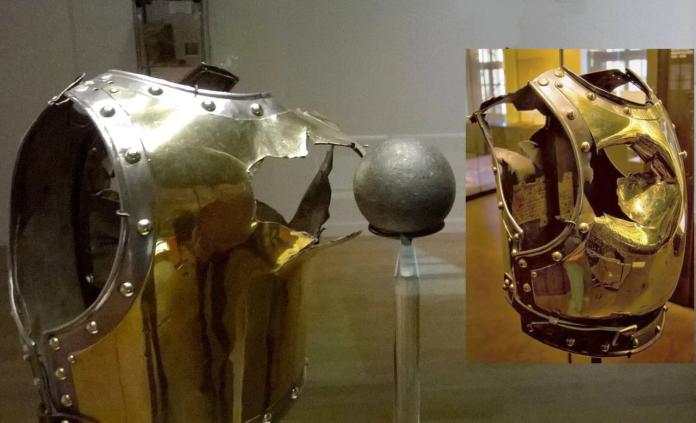The Story of Antoine Fauveau: A Young Cuirassier at Waterloo
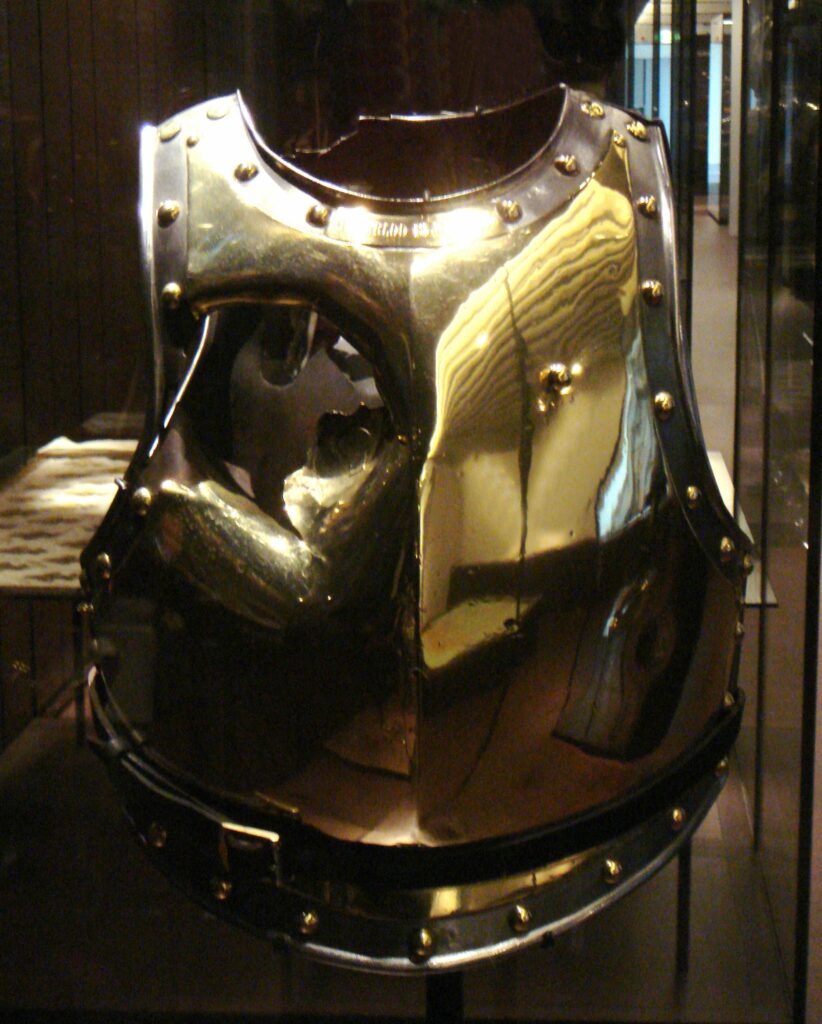
In the annals of the Napoleonic Wars, countless stories of bravery and sacrifice lie hidden. One such tale is that of Antoine Fauveau, a 23-year-old French cuirassier who fought and fell at the Battle of Waterloo in 1815.
The Cuirass: A Silent Witness
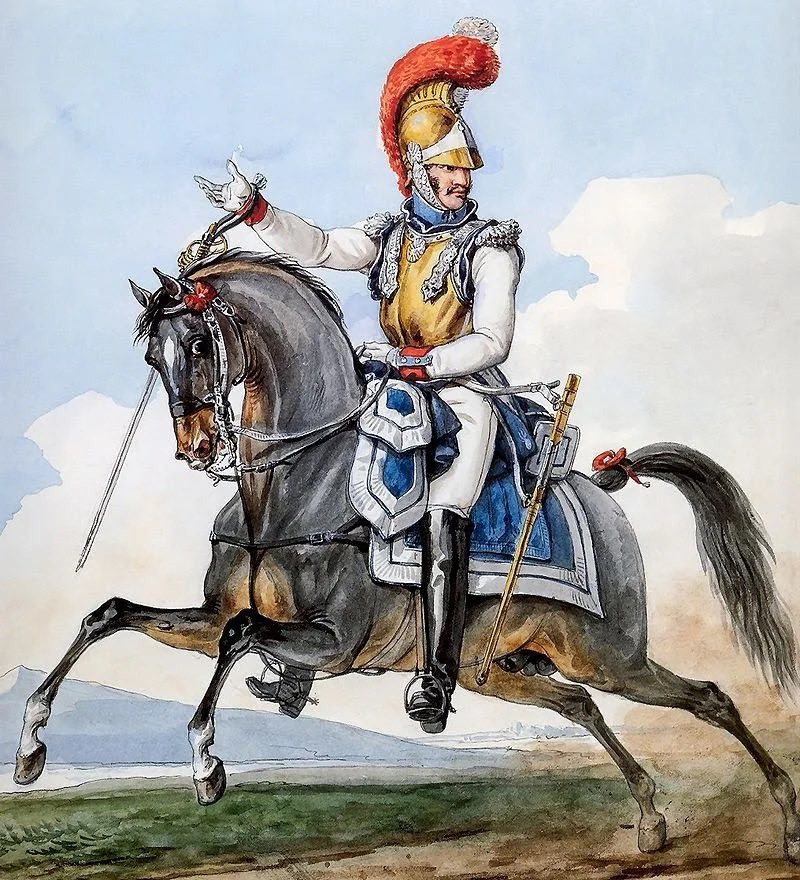
A weathered cuirass, once worn by Fauveau, now serves as a poignant reminder of his sacrifice. Inside its padding, a pay book revealed intimate details of the young soldier – a freckled dairyman on the cusp of marriage, with blue eyes and a hooked nose.
The Battle of Waterloo: A Fateful Day
On June 18, 1815, Fauveau donned his armor for the last time. The Battle of Waterloo, second only to Borodino in its devastation during the Napoleonic Wars, would claim his life along with thousands of others.

The Soldier’s Final Moments
It’s believed that Fauveau fell victim to a cannonball, his armor later stripped by looters. His remains, like those of many comrades, were likely consigned to a mass grave – a grim testament to war’s brutality.
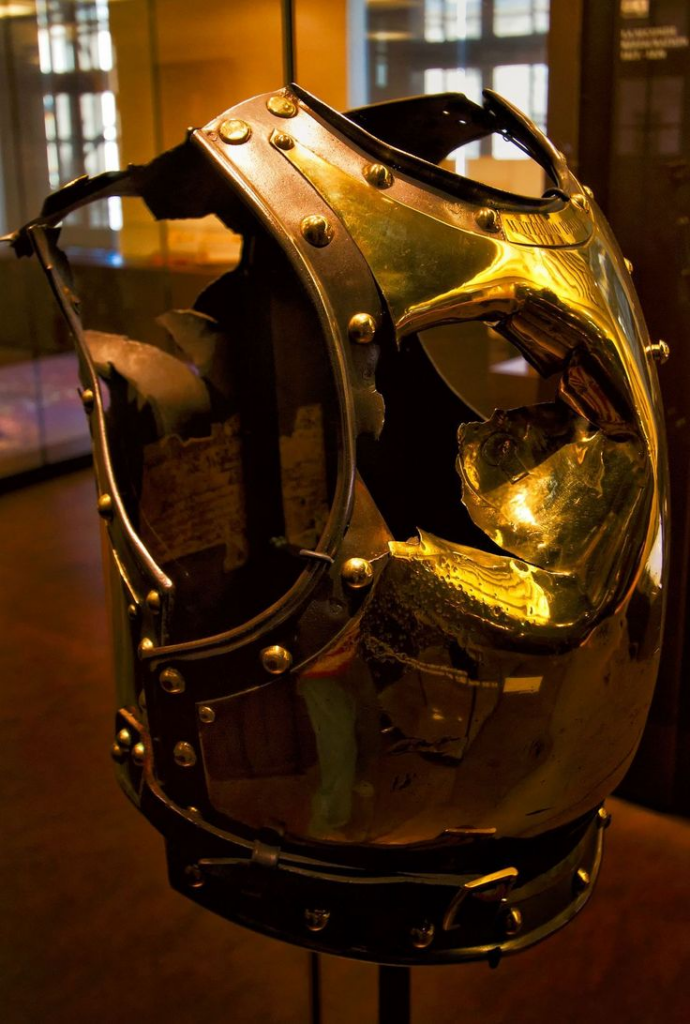
A Lasting Legacy
Though Fauveau’s final moments remain shrouded in mystery, his cuirass endures as a powerful symbol. It invites us to reflect on the human cost of conflict and the sacrifices made by those who fought in the Napoleonic era.
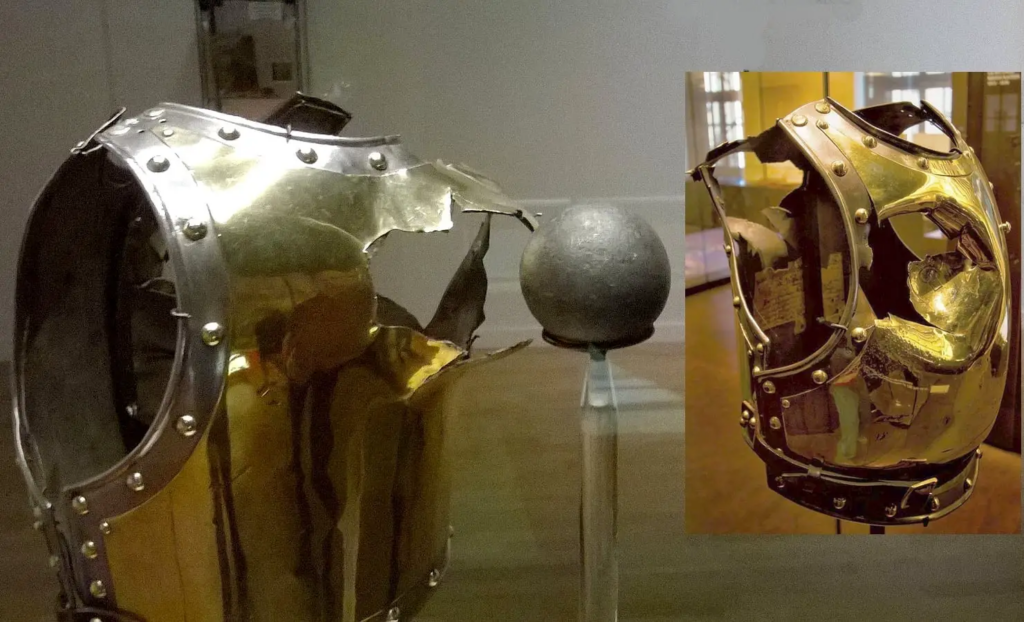
This battle-scarred armor does more than tell one soldier’s story; it compels us to honor all who have fallen in war and to strive for a future where such sacrifices are no longer
